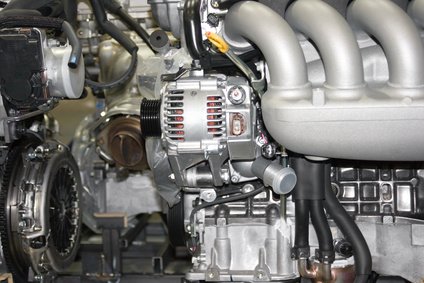
Knock sensors refer to sensors -- typically attached to the engine’s cylinder head or block -- that send signals to the ECU, or engine control unit, when they detect detonation. Knock sensors can experience problems that can impair engine function.
A faulty knock sensor can cause engine hesitation, or jerking, while in gear. Faulty knock sensors may send incorrect signals to the ECU, causing it to change ignition timing, which in turn can result in engine hesitation. Under these circumstances, the knock sensor often requires replacement.
A wiring short or fault in the knock sensor circuit can result in slower engine acceleration or revolutions per minute. A mechanic can check a suspected bad circuit in a knock sensor for broken or frayed wires leading to the sensor, and can check it against normal generated resistance, based on factory specs for that sensor.
A knock sensor causing engine shaking or rough idle often results in a service engine light or code warning. The driver can check against factory code lists for that particular vehicle to confirm the cause, then inspect the knock sensor for proper resistance, replacing it if necessary.